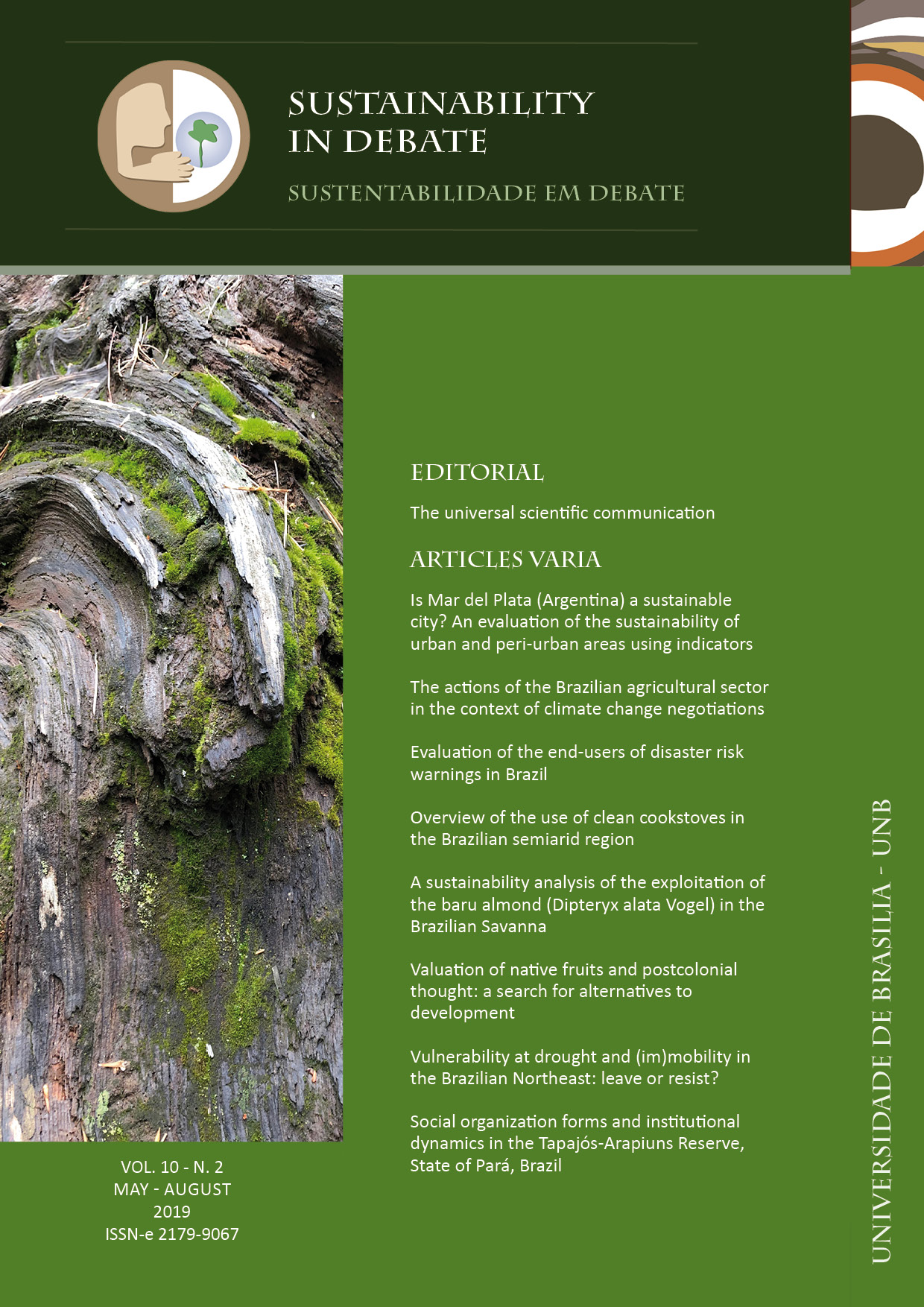Valuation of native fruits and postcolonial thinking: a search for alternatives to development
DOI :
https://doi.org/10.18472/SustDeb.v10n2.2019.22029Mots-clés :
Sociobiodiversity; Agroecology; Ecology of Knowledges; Action Research.Résumé
This research aims to identify the influence of two paradigms, namely colonial thinking and postcolonial thinking, on the valuation of native fruits, The sample was composed of six groups of farmers from the agroecology center Luta Camponesa Nucleus, which is linked to the agroecology network Rede Ecovida de Agroecologia, and the methodological procedures were based on the principles of action research. It concludes that the colonial thinking contributes to the elimination of native fruits, as a result of epistemicide, the advancement of the green revolution, and the food empires. On the other hand, the postcolonial thinking valorizes native fruits, especially through the ecology of knowledges, agroecology, and short circuits.
Téléchargements
Téléchargements
Publié-e
Comment citer
Numéro
Rubrique
Licence
(c) Tous droits réservés Sustentabilidade em Debate 2019

Cette œuvre est sous licence Creative Commons Attribution - Pas d'Utilisation Commerciale - Pas de Modification 4.0 International.
SUSTAINABILITY IN DEBATE – Copyright Statement
The submission of original scientific work(s) by the authors, as the copyright holders of the text(s) sent to the journal, under the terms of Law 9.610/98, implies in the concession of copyrights of printed and/or digital publication to the Sustainability in Debate Journal of the article(s) approved for publication purposes, in a single issue of the journal. Furthermore, approved scientific work(s) will be released without any charge, or any kind of copyright reimbursement, through the journal’s website, for reading, printing and/or downloading of the text file, from the date of acceptance for publication purposes. Therefore, the authors, when submitting the article (s) to the journal, and gratuitous assignment of copyrights related to the submitted scientific work, are fully aware that they will not be remunerated for the publication of the article(s) in the journal.
The Sustainability in Debate Journal is licensed under Creative Commons License – Non-Commercial-No-Derivation Attribution (Derivative Work Ban) 3.0 Brazil, aiming at dissemination of scientific knowledge, as indicated on the journal's website, which allows the text to be shared, and be recognized in regards to its authorship and original publication in this journal.
Authors are allowed to sign additional contracts separately, for non-exclusive distribution of the works published in the Sustainability in Debate Journal (for example, in a book chapter), provided that it is expressed the texts were originally published in this journal. Authors are allowed and encouraged to publish and distribute their text online, following publication in Sustainability in Debate (e.g. in institutional repositories or their personal pages). The authors expressly agree to the terms of this Copyright Statement, which will be applied following the submission and publishing by this journal.






